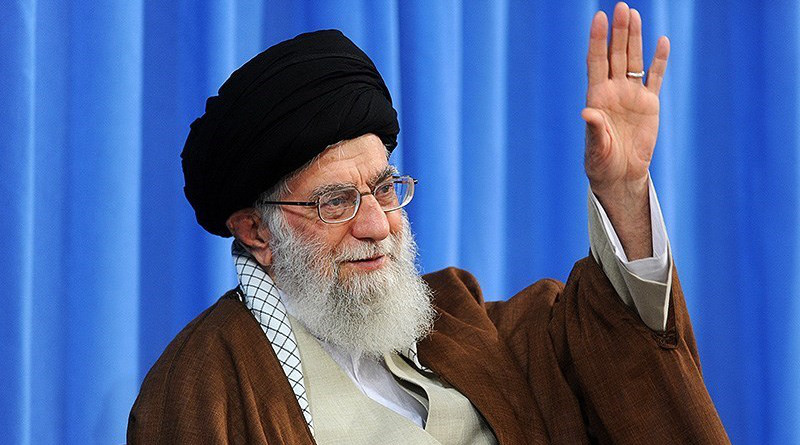Iran’s Strategy And Tactical Shift Until The US Elections – OpEd
By Arab News
By Dr. Majid Rafizadeh*
In spite of the fact that the US and Israel have put significant pressure on the Iranian regime this year, Tehran has tactically refrained from responding with a major military attack against either of them. The Iranian leaders will likely continue to pursue this policy until after the US presidential election in November.
Iran has seen several major explosions and fires at its sensitive military and nuclear sites — including the Natanz nuclear facility and the Khojir missile manufacturing complex — in the last few months. The attacks have been attributed to Israel due to their sophisticated nature. Tel Aviv has also attacked several military bases reportedly linked to Iran’s Islamic Revolutionary Guard Corps (IRGC) in Iraq and Syria, but Iran has not responded with similar attacks against Israel.
Even Supreme Leader Ali Khamenei, who has the final say on Iran’s domestic and foreign policies, has abstained from pointing the finger at Israel for the explosions at the nuclear sites. He has also not instructed the IRGC to carry out a major attack against Israel, either directly or through the IRGC’s proxies and militias.
Similarly, since Iran’s top general Qassem Soleimani was killed as a result of a direct order from US President Donald Trump in January, Tehran has not yet carried out an extensive military attack against American interests, despite its heightened and threatening rhetoric. The few missiles that Iran did launch at US bases in Iraq after the death of Soleimani did not kill any American troops and Washington was reportedly even given prior warning of the attacks.
This does not mean that the Iranian regime is not seeking to retaliate extensively against Israel or the US. However, from the perspective of the Iranian leaders, it is in their interests to be cautious until after the US election for two reasons.
First of all, the Iranian authorities are concerned that, if they launch any major attack against Israel for sabotaging their nuclear sites or for attacking their bases in Syria and Iraq, Israel would use the opportunity to initiate a direct war against Tehran. The Trump administration would also back its ally militarily, which would be devastating for the Iranian regime at this critical time.
The economic situation in Iran is also dire and the government is nearly bankrupt. The value of Iran’s currency, the rial, plunged to a record low this summer, with one US dollar buying about 240,000 rials in July, up from about 30,000 before the US began its “maximum pressure” policy against Tehran. Iran’s oil exports have also sunk to a record low due to US sanctions. The Iranian regime’s budget heavily relies on income from oil exports.
The regime is even finding it difficult to pay its own employees. Many government workers, including coal and railroad workers, have been protesting over unpaid wages and salaries. One protester told Iran News Wire in April: “I wish I would get COVID-19. Many of us do. Committing suicide is hard but we wish for death every day. What we have is not a life. Do you think this is living?”
It has also been publicly stated that some of Iran’s authorities do not have enough money to pay their mercenaries abroad. For example, IRGC Brig. Gen. Parviz Fattah, the head of the Mostazafan Foundation for the underprivileged, stated in the spring: “I was at the IRGC Cooperative Foundation. (Soleimani) came and told me he did not have money to pay the salaries of the Fatemiyoun (Afghan mercenaries). He said that these are our Afghan brothers, and he asked for help from people like us.”
In addition, a second wave of coronavirus disease infections has hit the country, leading regime officials to become increasingly concerned about the possibility of widespread unrest or even the collapse of the political establishment.
The second reason that Iran is tactically refraining from taking major military action against the US is that it is worried that such a move would actually assist Trump in getting re-elected as it would mobilize his base and potentially sway some undecided voters to back him over Joe Biden. Whenever the US has come under major attack from foreign state or non-state actors in the past, its people have tended to re-elect the incumbent president.
Iran is likely biding its time before retaliating militarily against Israel and the US. It does not want to jeopardize Biden’s chances of winning the November election and unseating Trump.
- Dr. Majid Rafizadeh is a Harvard-educated Iranian-American political scientist. Twitter: @Dr_Rafizadeh

